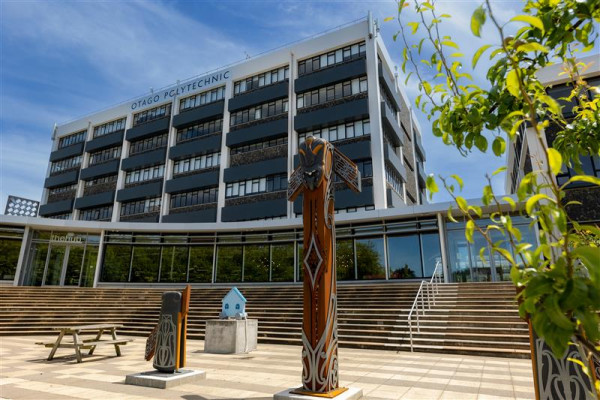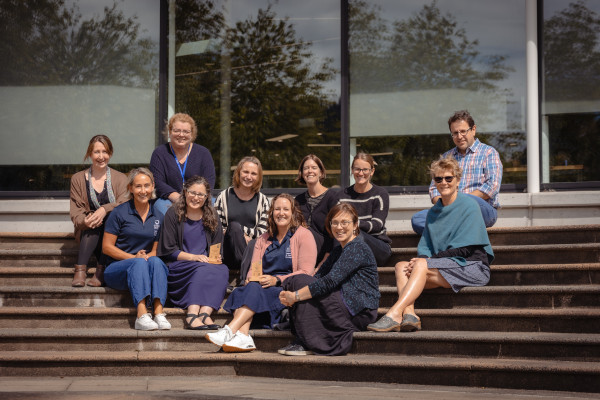- Tūhono home Hoki ki Tūhono
-
- Staff Directory
- Chief Executive Office Auckland International Office Corporate Services Finance Campus Services Functions and Catering Information Systems and Support Marketing, Communications and Engagement Learner Journey Academic Registry International Learner Services Te Punaka Ōwheo
- Learner Experience Academic Excellence Central Campus College of Community Development and Personal Wellbeing College of Engineering, Construction and Living Sciences College of Health College of Work Based Learning Open Education Resource/OERu Research and Postgraduate Studies Te Maru Pumanawa | College of Creative Practice and Enterprise
- Māori Development and Kaitohutohu Office People, Culture & Safety People and Culture Childcare Centre Te Ama Ako | Learning and Teaching Development Wellbeing and Safety Auckland Staff Directory Executive Office Academic Corporate Services Marketing and Business Development Human Resources Campus Quality and Programme Development
-
 Our people make a better world
Our people make a better world
We build the capabilities of individuals, organisations and communities and help them to realise their potential.
Staff Directory
-
- Tools
- Academic Integrity Declaration Form AIC applications dashboard Approved programmes Approved programme fees Centralised assessement repository Chemwatch Course evaluation and surveys CRM applications CRM customer service hub Delegations policy/process Disability and neurodiversity Dynamics 365 (CRM) EBS Ontrack EBS Report Email security personal portal Employment Matters / Solarworkplace / Performance reviews eTaxi eTV
- Financial variance reporting Hidden Disabilities Sunflower programme FCM travel intranet InPlace International entry requirements Knowledgebase articles Learner support dashboards Linkedin Learning Log a job with Marketing Login as an applicant Media consent form Microsoft 365 Moderation App Moodle OP Docs OP Docs - Publishing OP Image Libraries Performance Excellence Portal Pocket Lab (student healthcare) Product Evaluation Panel
- Policy Library Privacy Programme and course design/development Qualtrics XM RDS Remote access support portal Research Database Robertson Library Staff FAQs about graduation Status of Programmes Student intranet (Kāpehu) Study Abroad info for learners Taha Talks (videos for students) Tūhauora I Wellbeing resources Uniprint Vault Webexpenses Auckland tools
-
 Vault
Had an accident or near miss?
Log it here
Vault
Had an accident or near miss?
Log it here
-
- Communities
- Community AI Steering Committee Ally Network EBS Community of Interest EdTech Champions Health & Wellbeing Research Internal Evaluation Neurodiversity Professional Team Professoriate Proud@OP Student Support Website Advisory Group Web Champions Working under the Rainbow Project Learner Capability Trade Training Centre
- Committee Academic Committee Animals@OP Diversity and Equity Doctor of Professional Practice Committee Kaunihera Whakahaere - Leadership Council Internal Evaluation Learning & Teaching Leadership Team Library Committee Mental Health and Wellbeing Advisory Group Otago Polytechnic Board of Directors Pastoral Care Code Committee Programme Approvals Committee Research and Postgraduate Committee Research Ethics Committee Staff Subcommittee
- Think Tanks Mātauraka Our learners achieve educational success Pūtea Our financial success Tākata Our people, our team, our community Tiriti Our active commitment as a Treaty partner Tūroa Our commitment to be a sustainable and responsive organisation
-
 Create a community
Create a community
Do you have a community, committee or project that you'd like represented here?
Communities
-
- About OP
- Keep up to date All news All events All notices All blogs Share your info Create a news article Create an event Create a notice Create a blog
- Community and Partnerships Alumni and friends Education Foundation Operational information Academic calendar 2025 Academic calendar 2026 Current vacancies Dunedin campus map Our policies Topical FAQs
- Who we are About OP Commemorative sites Māori Strategic Framework OP merchandise Our history Our strategic priorities Pasifika Action Plan Pasifika Strategic Framework (2025-2030) Vision and Values Working for us OP job opportunities Wellbeing Calendar Working at OP
-
New Zealand: 0800 762 786
contact us
International: +64 3 477 3014
A long-term physical activity programme: What keeps them coming?
Author: Michelle Leathart
Supervisors: Rita Robinson Yvonne Thomas
Leathart, M. (2023). A long-term physical activity programme: What keeps them coming? (Unpublished document submitted in partial fulfilment of the requirements for the degree of Master of Occupational Therapy). Otago Polytechnic | Te Pūkenga, New Zealand. https://doi.org/10.34074/thes.6345
Abstract
The Big Fun Model is a combination of the occupational therapy theory of sensory integration and gymnastics. Big Fun NZ has had athletes attending for upwards of eight years. If a therapy model is used to assess the success of the Big Fun NZ programme it could be seen as a failure due to the length of time that people have been attending the programme. If however a sports model is applied then the Big Fun NZ programme would be thought of as a success due to its long term retention of participants.
Objectives: This research project aimed to answer the question 'What maintains/influences people's engagement in Big Fun NZ over an extended period of time and through different life stages?' This is to add to the small amount of literature regarding the factors that foster long-term involvement in physical activity programmes.
Method: This research project interviewed seven family groups, usually a dyad of an athlete and their parent/guardian, who have been attending sessions for between 8 and 14 years. The interviews were transcribed verbatim and then analysed using QUAGOL.
Results: From the analysis of the interviews consistency and routine were the two factors identified that maintained long-term involvement. With smashing parental assumptions, benefits of physical activity, and enjoyment being the three factors that worked to maintain involvement. The concept of integration versus segregation was also explored. With the participants in this research project preferring the exclusive environment that Big Fun NZ currently operates in.
Conclusion: The themes identified in this research project fit into the occupational therapy Do-Live-Well framework. This framework is aimed at improving people’s health and well-being by using a health promotion emphasis rather than an illness emphasis. As a primary and secondary prevention strategy the Big Fun Model falls under health promotion, this categorisation gives clarity and direction to the role of Big Fun New Zealand within the adaptive physical activity community.
Keywords
health promotion, long-term programme, Big Fun, sensory integration, sports, physical activity
Licence
A copy of the thesis is publicly available under a Creative Commons Attribution Non-Commercial No Derivatives licence CC BY-NC-ND 4.0 International
![]()